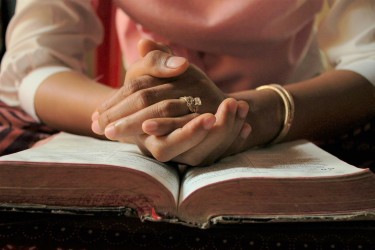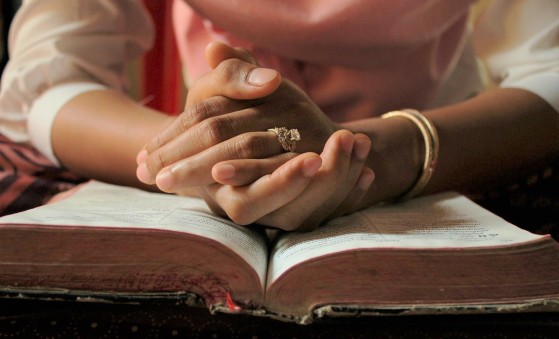
The Karnataka State Commission for Backward Classes launched its Socio-Economic and Educational Survey-2025 on Monday amid strong opposition from ministers, opposition parties and religious heads, after masking 33 Hindu castes with Christian religious identity from the mobile application developed for the survey.
The 16-day survey, ending on October 7, will cover over 7 crore people across the state. After analysing data, the commission is likely to submit its report to the government for further action by December 2025, which could lead to tweaking of categories and redistribution of quotas.
4 lakh Christians had chosen these identities in 2015
The controversy centres on categories that existed in the 2015 Kantharaju Commission report. Similar controversies arose during Karnataka’s previous caste survey in 2015, when the BJP objected to Christian sub-caste categories including Brahmina Christian and Kuruba Christian, while Roman Catholic and Protestant communities—the majority Christian denominations in the state—were excluded from the survey form despite having substantial populations.
Fr Richard D’Souza of Canara Communication Centre had noted in 2015 that “the number of other Christians mentioned in the list is nowhere comparable to Roman Catholics and Protestants in the State.” The Karnataka Christian Development Committee, despite being headed by Home Minister K J George, had failed to submit representations for inclusion of these major Christian categories. The 2015 survey included 50 Christian sub-castes, while the current survey originally contained 57 such categories before 33 were masked.
Member-Secretary KA Dayananda revealed that during the previous survey, over 4 lakh people, including 5,000 Brahmins and 2,000 Vokkaligas, had registered themselves with Christian religious identity.
Commission Chairman Madhusudan R Naik clarified, “The inclusion of new castes did not happen after I became the chairperson. It existed in the Kantharaju commission report in 2015.” He explained that as people’s representatives and others raised concerns over the new castes, the commission decided to remove 33 castes from the dropdown of categories.
The masked categories include Akkasaliga Christian (code A-0020), Brahmana Christian (A-0217), Kuruba Christian (A-0810), Vokkaliga Christian (A-1542) and Vysya Brahmana Christian (A-1545). However, those willing to identify with any caste, including the 33 that have been masked, can do so by opting for the ‘others’ column with specific entry, though they will not be included in the list of 1,528 castes.
BJP and Congress ministers unite against Christian categories
Governor Thaawarchand Gehlot raised concerns following a representation by a BJP delegation and wrote to Chief Minister Siddaramaiah, pointing out that the inclusion of castes with the Christian tag would create unrest in society.
The BJP and various caste associations objected to the ‘caste list’ in the handbook published for surveyors, which contained around 1,800 social identities, including 57 ‘Christian sub-castes’ such as ‘Vokkaliga Christian’, ‘Brahmin Christian’, and ‘Kuruba Christian’. The BJP alleged this was an attempt to ‘divide Hindu society’ and demanded removal of these entries.
Karnataka BJP Minorities Morcha president Anil Thomas claimed, “The new nomenclature will normalise conversion and encourage the gullible to convert without fear of losing caste identity.” Samajika Nyaya Jagriti Vedike president S Harish accused the Congress government of plotting “to integrate Christians into Hindu OBC communities” and of “labelling Hindu communities as Christians.”
Thursday’s Cabinet meeting witnessed heated arguments as senior ministers raised objections to adding 331 castes to the survey list. Chief Minister Siddaramaiah came under intense pressure from his own ministers to scrap the survey or postpone it until “anomalies” were set right.
Deputy Chief Minister DK Shivakumar, described as a “Vokkaliga strongman,” and senior Ministers MB Patil and Eshwar Khandre, both representing the Veerashaiva-Lingayat community, specifically opposed the “new castes” including Christian sub-caste categories. Minister Eshwar Khandre also serves as general secretary of the Veerashaiva Mahasabha, highlighting potential conflicts of interest.
Chief Minister Siddaramaiah expressed displeasure over his ministers’ stand, telling them that “this survey is for the poor and not a caste census.” The ministers told the CM that the survey was being projected as pro-Dalit, pro-backward classes and anti-upper caste in society, expressing apprehension that the caste survey may backfire.
Following the Cabinet pressure, the Chief Minister asked the commission to address the confusion by masking the controversial categories so they could be enumerated under the ‘Others’ category instead. After the Cabinet meeting, six ministers, including MB Patil, Eshwar Khandre, HC Mahadevappa, KH Muniyappa, and Byrathi Suresh held another round of meeting.
Christian leaders debate theology versus practical reality
Health Minister Dinesh Gundu Rao, described as “the Brahmin face in the Congress government,” wrote to commission chairperson Madhusudan R Naik flagging various anomalies concerning his community, including contentious nomenclatures such as “Brahmana Christian.”
In his letter, Rao stated that nomenclatures such as “Brahmana Christian” and “Vyasa Brahmana Christian” were “not only immoral, but also illegal.” He argued, “A person who converts to Christianity loses the caste identity. The person also exits Hindu religion. There is no caste called Brahmana under Christianity.”
Speaking to Christian Today, Dalit activist and scholar Dr. Goldy M. George offered a different perspective: “Christian families are not unsure about their identities; they are caught between impossible choices. The system forces them to choose between declaring their faith and accessing opportunities for their children. When a pastor’s daughter needs 17 lakhs for medical college, his scheduled caste certificate becomes her pathway to education. The theological truth is that unity in Christ doesn’t erase social identities; these identities remain, but we become unified despite them.”
Rao also pointed out that the commission had given separate codes for “Brahmana”, “Smartha Brahmana” and “Hoysala Karnataka,” questioning which code a Hoysala Karnataka person, who would be a Smartha Brahmin and a Brahmin, should choose.
The commission published a list of 1,413 castes, after which 148 were added following petitions for additions, taking the total to 1,561, excluding 101 Scheduled Castes and 50 Scheduled Tribes. Of the 38 Christian groups in the caste list, the commission decided to retain five and mask 33 others after the controversy arose.
The five retained classifications are Christian, Christian Protestant, Protestant Christian, Syrian Christian and Scheduled Caste converts to Christianity.
When asked about reservation benefits, Dayananda said the law recognises change of religion after conversion, but the caste does not change. “With respect to reservation and benefits, it is given as per the government decision.”
Survey faces technical glitches, legal challenges on opening day
The survey asks around 60 questions including three on social identity, allowing people to identify their religion, caste, and sub-caste. The question on religion gives people seven options: Hindu, Sikh, Jain, Buddhist, Muslim, Christian, and Others.
The Rs 420-crore exercise involves 1.75 lakh enumerators, mostly government school teachers, covering around 7 crore people in approximately 2 crore households across the state. Each household will be geo-tagged using its electricity meter number and assigned a Unique Household ID. During data collection, ration cards and Aadhaar details will be linked to mobile numbers.
Technical glitches and server issues were reported in several districts including Shivamogga, Haveri, Ballari, Chitradurga, and Kodagu on the first day, delaying the survey in some places. A dedicated helpline number (8050770004) has been established for those unavailable during the survey or to address grievances.
Although the 57 Christian sub-castes have been removed from the main list, those who choose to be identified as, for example, ‘Brahmin Christian’, will be recorded in the ‘Others’ category under religion.
Because of the Greater Bengaluru Area’s new corporations, the survey launch will be delayed by 2-3 days in Bengaluru, and the survey deadline is likely to be extended beyond October 7. In GBA, people can book a slot to register in their own time. The Karnataka High Court is scheduled to hear petitions challenging the legality of the survey on September 23.
Commission Chairman Madhusudan Naik stated there is no value for the religion column in enumeration since religion does not come under the commission’s purview. “We will not be evaluating on the basis of religion and information is being sought under a broader category.”
His response came after attention was drawn to attempts by Veerashiava-Lingayat groups to enumerate their community members under “others” in the religion category. “In their movement for religion, they can advise their community members to write in a certain manner to assert themselves. But when we analyse, it will have no value. Our concern is to have an analysis based on socio, economic, educational and political backwardness.”
Commission officials clarified that the list of castes is only for reference of enumerators and consumption of the commission. “It is not a public document and does not have legal validity,” they stated. The commission emphasised that it did not create any caste list and took cues from the list drawn up by the H Kantharaj Commission.
The survey represents a Rs 420-crore project announced by the Siddaramaiah-led government after junking the report of the previous caste census conducted in 2015, which several dominant caste groups opposed and claimed was done in an unscientific manner.
Speaking to Christian Today, Dr. John Dayal, veteran journalist, human rights activist and spokesperson for All India Catholic Union said, “When over 4 lakh Christians voluntarily chose these identities in 2015, they were asserting their lived reality. Erasing these categories under political pressure is not administrative convenience, it’s the systematic deletion of Christian voices from public discourse. If we allow our complex identities to be simplified out of existence in Karnataka, what prevents similar erasures in the national census? Invisible communities receive no justice.”




